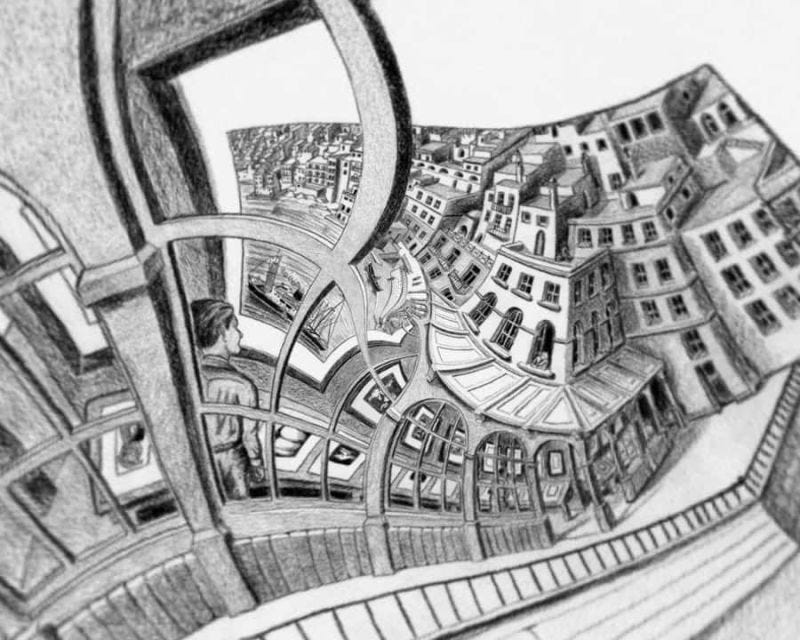Beyond Perfect Maps: Rethinking Strategic Foresight
From Borges to metamodernism: finding courage in uncertainty
In "On Exactitude in Science," Jorge Luis Borges tells us of an empire where the art of cartography became so exact that only a map the size of the empire itself would suffice. The map, in its perfect precision, became as useless as it was accurate. In time, the massive parchment weathered away, leaving only tattered fragments in the desert – a monument to the futility of perfect representation.
Today, we face a similar paradox in foresight and future planning. Our empire isn't geographical but temporal, and our cartographers are futurists armed with scenario planning tools and possibility cones. The future cone, that expanding field of possibilities radiating outward from our present moment, has become our own 1:1 map – impressive in theory, impotent in practice.
While foresight never claimed to predict – its explicit goal has always been to imagine futures that inform present action – the very act of detailed imagination can become its own form of paralysis. Like the cartographers who forgot that maps serve travelers rather than define territory, we risk forgetting that imagined futures should serve present action rather than become exhaustive catalogs of possibility.
This is where informed naivety enters the picture – not as a retreat from imagination, but as a sophisticated response to it. Imagine a ship's captain who understands the ocean's vastness yet still sets sail, using that very understanding to stay alert and adaptable. The metamodern turn suggests that authentic enthusiasm and emotional connection aren't distractions from serious future planning – they're prerequisites for it.
What we need isn't more sophisticated future imagination but a more sophisticated relationship with uncertainty itself. The metamodern approach offers this: a way to remain absolutely aware of complexity while refusing to be paralyzed by it. It suggests that the best way to explore the future might be to build it, informed by deep understanding but driven by genuine excitement about possibilities.
The question isn't whether we can imagine every possible future – we can't. The question is whether we can find the courage to act meaningfully despite this knowledge. Informed naivety suggests we can, and must. After all, the best map of the future might not be a map at all, but the wake left behind by ships bold enough to sail.
P.S.: I'm currently developing a workshop approach based on this thinking. I code named it "Can't be right / Don't be wrong". If you are interested in learning more, drop me a line.


